Complete pulmonary function testing machines
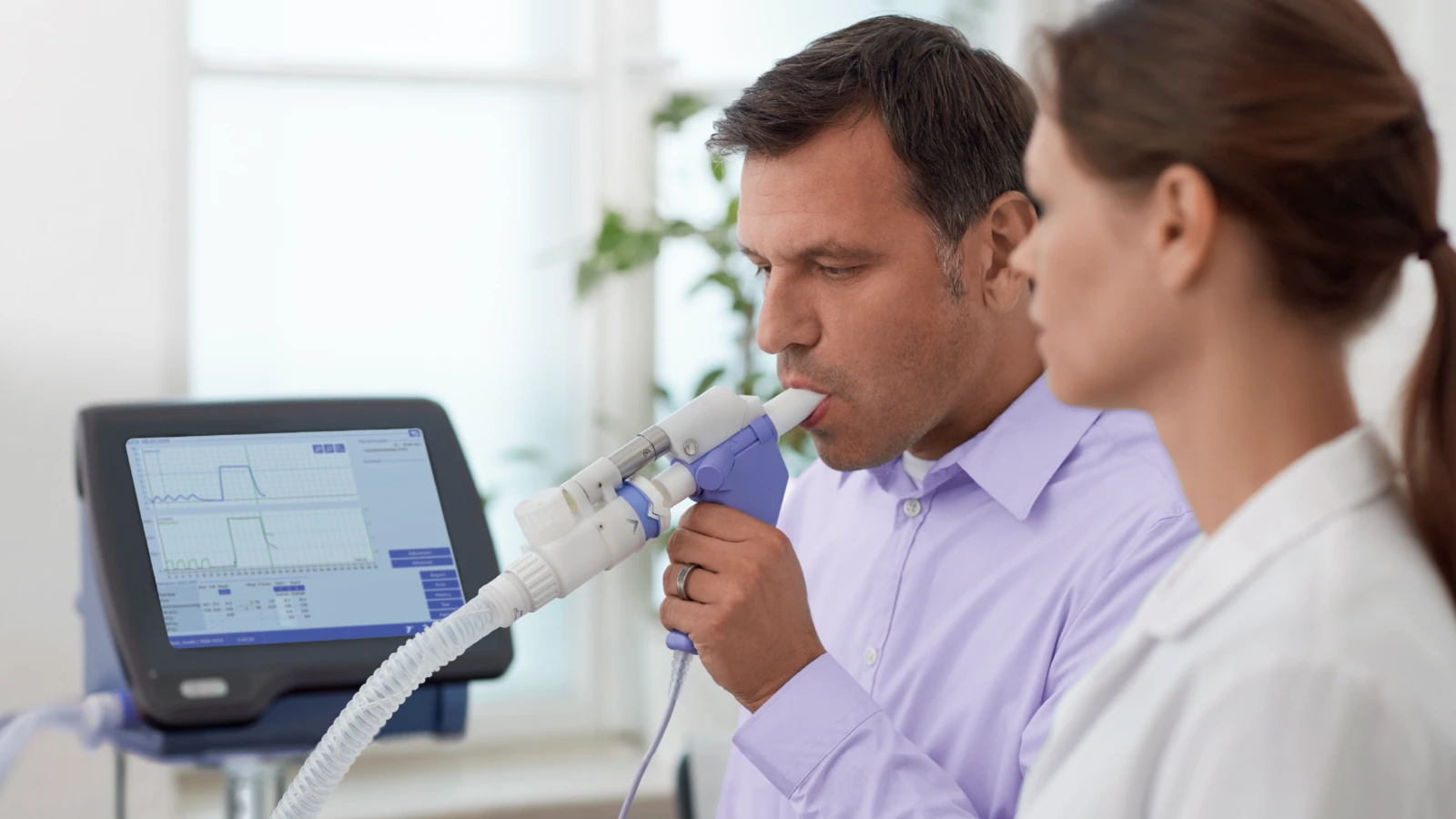
Complete pulmonary function testing (PFT)
A complete pulmonary function test (PFT) typically involves several respiratory tests to assess lung health which include spirometry, lung volumes and diffusing capacity (DLCO). The results obtained from these tests provide clinically valuable information for diagnosing respiratory diseases, determining disease severity, monitoring treatment response, and guiding treatment decisions.
A complete pulmonary function machine provide accurate and objective data, enabling healthcare professionals to tailor treatment plans, assess treatment effectiveness, and track disease progression over time. PFT machines are indispensable tools in respiratory medicine, assisting in the comprehensive assessment and management of respiratory conditions.
Complete pulmonary function solutions
- EasyOne Pro
- Spirometry
- DLCO
- Provocation challenge testing
- Lung volumes
- Single breath helium dilution
- EasyOne Pro LAB
- Spirometry
- DLCO
- Provocation challenge testing
- Lung volumes
- Multi-breath nitrogen washout
- Lung clearance index (LCI)
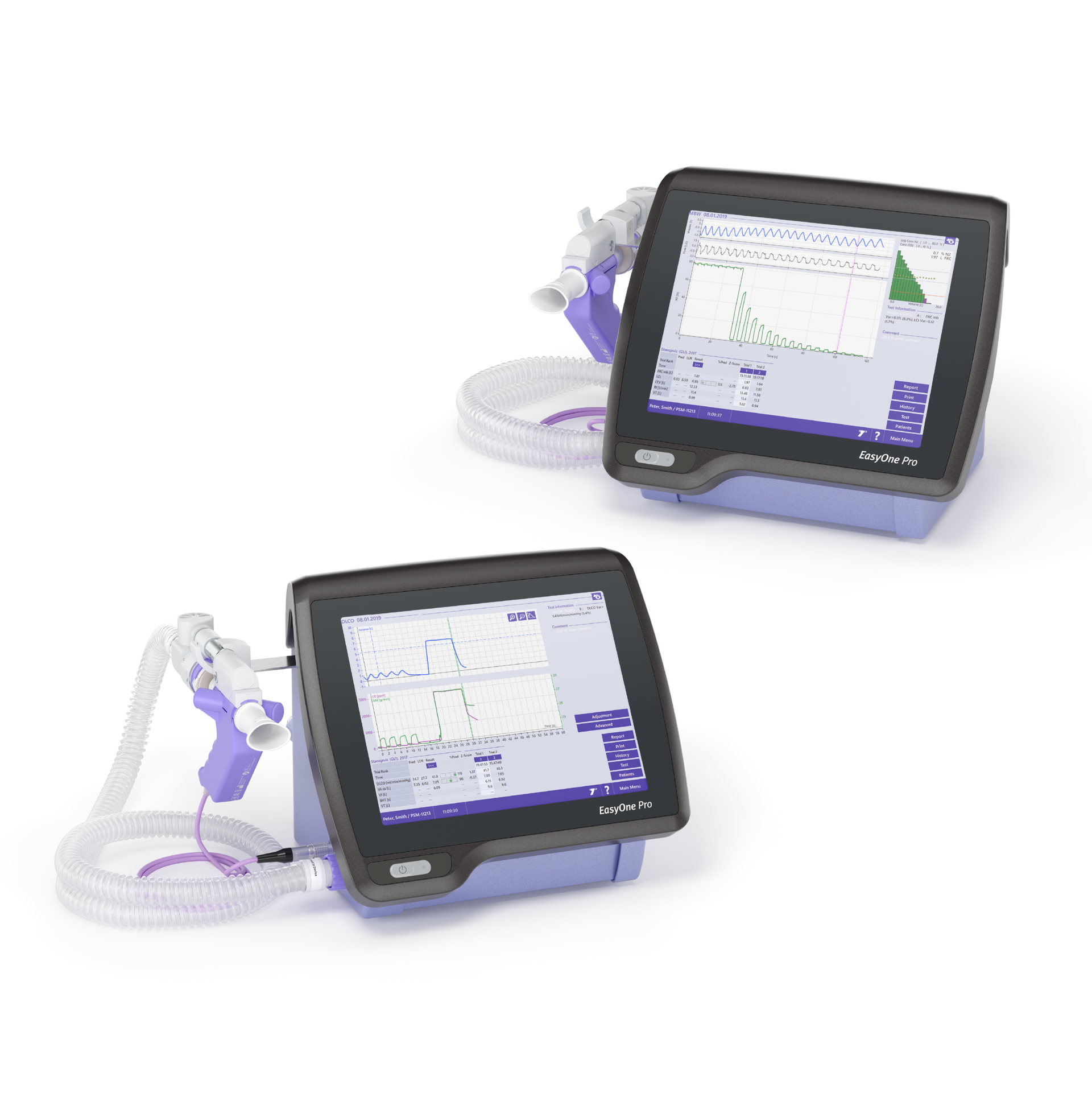
Go with the experts in pulmonary function testing.
Quick & accurate results
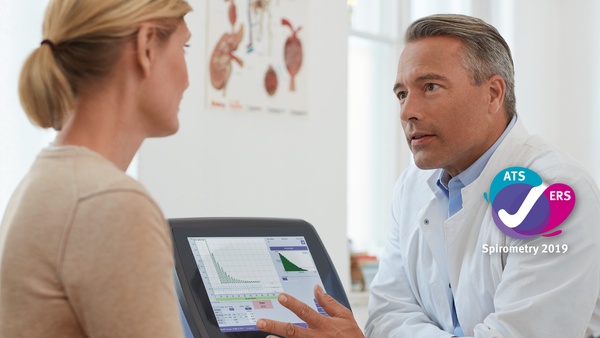
High reimbursement

Easy & simple to use

Point of care pulmonary function testing applications
Uses | Focus | |
|---|---|---|
Pulmonary | Spirometry, DLCO, Lung Volumes, Challenge provocation testing, LCI | Early & differential diagnosis; monitoring of patients with lung disease |
Cardiology | Spirometry, DLCO | Differential diagnosis; co-morbidy between heart failure & lung disease |
Primary Care | Spirometry, DLCO | Accurate diagnosis of asthma, COPD |
Allergy & Asthma | Spirometry, Challenge provocation testing, Lung Volumes | Accurate asthma diagnosis, improved asthma management |
Cystic Fibrosis | Spirometry, DLCO, Lung Volumes, Challenge provocation testing, LCI | Monitor disease progression in CF patients |
ndd TrueFlow Ultrasound Technology
Superior choice in lung function measurement
- Not influenced by temperature, heat, humidity, barometric pressure, or altitude.1
- Proven accuracy for the lifetime of flow and volume measurements
- Calibration not required, device maintains stability for a lifetime of use
- Studies show reliable sensor performance under various conditions in diverse environments.23
This statement only applies when used under the operating conditions of the device. ↩︎
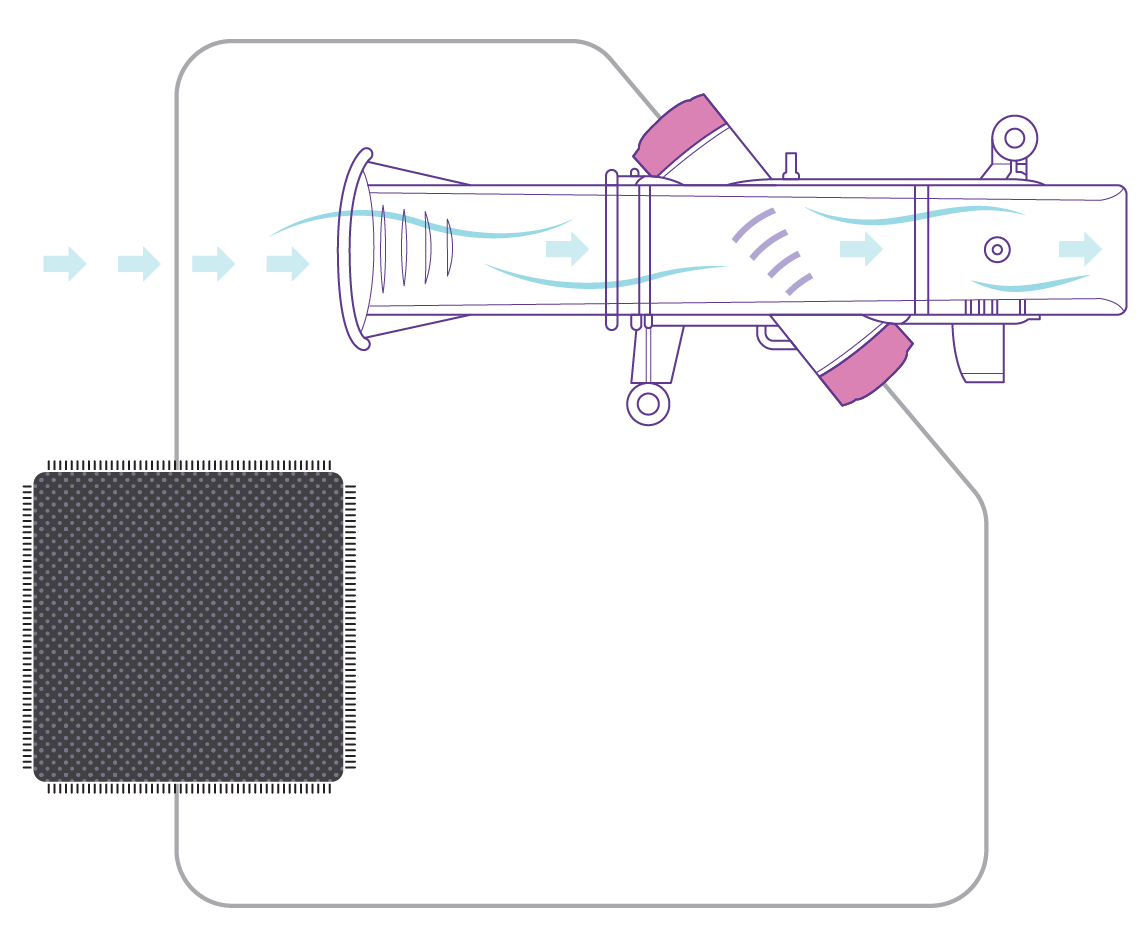
ndd TrueCheck Technology
- Eliminates the need for gas-calibration as well as the need for an external DLCO simulator
- 5-point calibration including stability and linearity of tracer gas and CO sensors
- Automatic flow baseline setting
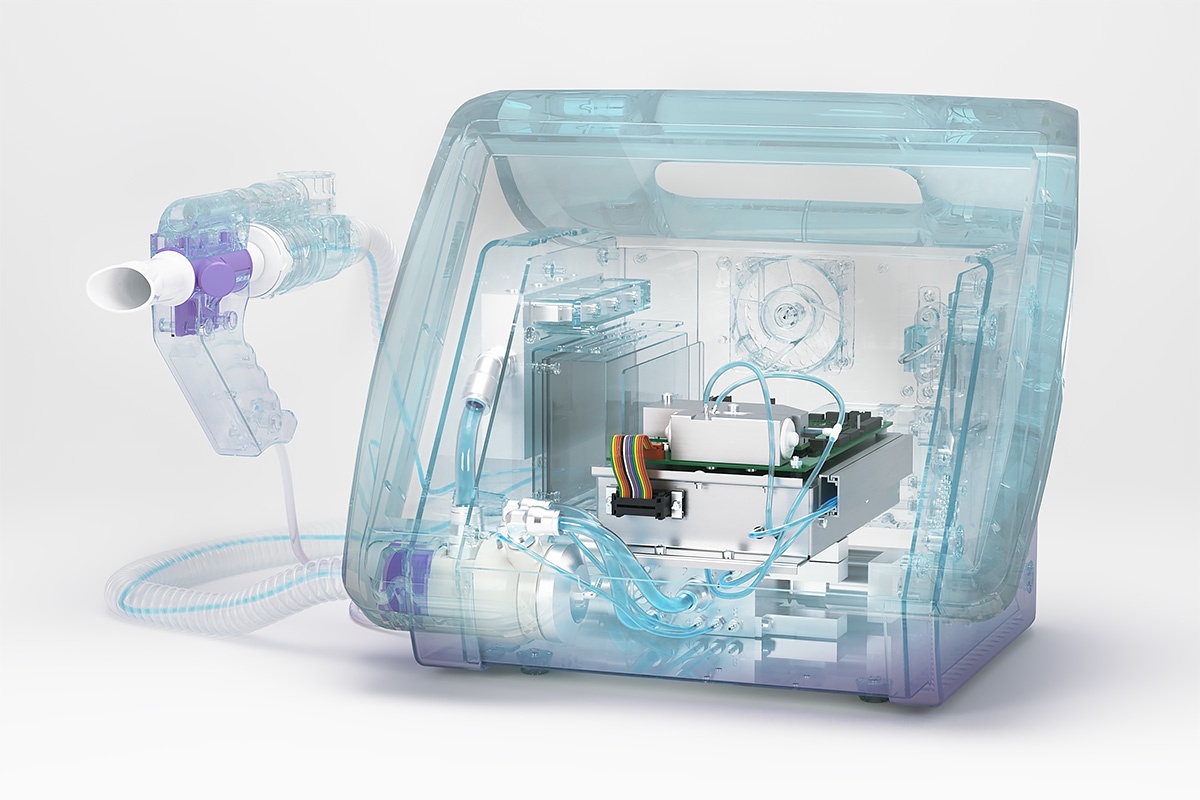
Products
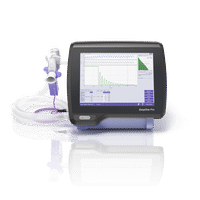
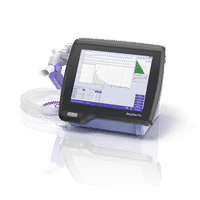
EasyOne Pro LAB
Portable DLCO, MBW, Lung Volumes, LCI and Spirometry
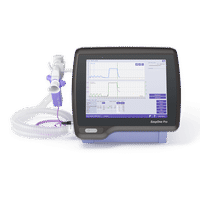
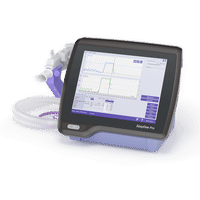
EasyOne Pro
Portable DLCO, Lung Volumes and Spirometry
Frequently asked questions
What is a complete pulmonary function test? #
A complete pulmonary function test includes spirometry (possibly with pre/post-bronchodilator), diffusion capacity (DLCO), and absolute lung volumes.
What is the difference between spirometry and a complete pulmonary function test (PFT)? #
A spirometry test is a specific type of pulmonary function test. Spirometry measures the lungs volume (or how much) and flow (how quickly) the patient can move air into and out of their lungs. Spirometry will tell the tester if the patient has an obstruction, restriction, a mixed defect, or has normal lung flow.
Spirometry does NOT look at gas exchange and does not provide absolute lung volumes (RV, FRC, and TLC).
Diffusion capacity or transfer factor of the lung for carbon monoxide (CO) is known as a DLCO test. This measures the gas exchange and is used in conjunction with spirometry to provide a differential diagnosis. DLCO is also used to assess disease severity and is one of the best correlates of emphysema in COPD.
The final component that completes the full PFT exam is measuring absolute lung volume (RV, FRC, and TLC). This is completed by measuring gas dilution, or nitrogen washout. Lung volumes are commonly used for the diagnosis of restriction. In obstructive lung disease, they are used to assess for hyperinflation. The changes in lung volumes can also be seen in a number of other clinical conditions.
What is Diffusion Capacity (DLCO) testing? #
Diffusion capacity (DLCO) is a clinically useful test that provides a quantitative measure of gas transfer from the lungs to the blood. It complements spirometry in evaluating and managing patients with cardiac and/or respiratory disease.
When would you use DLCO testing? #
Diffusion capacity testing (DLCO) is best used to pinpoint the type of respiratory disease. It is completed after spirometry when an obstruction or lung volume issues are predetermined.
- Differentiating emphysema from obstructive bronchitis and chronic asthma
- Assessment of COPD
- Detection of pulmonary vascular disease
- Assessment of shortness of breath (SOB)
- Disability/Impairment evaluations for ILD or COPD
What will lung volumes show you? #
Lung volumes are used to diagnose restrictive lung disease and to assess for hyperinflation in obstructive lung disease. With restrictive lung disease, TLC, VC, and RV may be decreased due to the inability of the lungs to expand properly.
The lungs are restricted from fully expanding and filling with air. In an obstructive disease such as COPD, patients may develop hyperinflation, which will result in a higher than normal TLC and RV. Conversely, IC will be decreased due to air trapping in the lungs.
